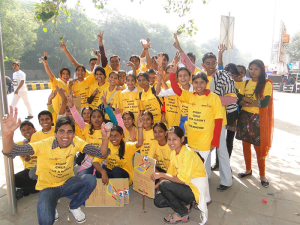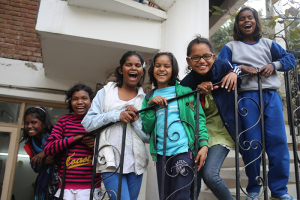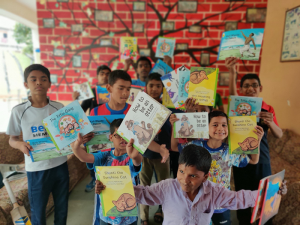India has one of the largest numbers of children in the world. Child rights are essential to human rights. Children are not the property of their parents but rather the subject of their rights. India and its diverse economic, cultural, and political landscape represent problems in ensuring child rights. There has been progress made in attaining child rights over the past few years. However, India still faces several issues in ensuring child rights across various spectrums of its society.

Here are a few children’s rights that should exist in society:
The Right to Survival
Every child deserves to survive, with the most vital needs being that health, nutrition, life, and identity. The children should have adequate healthcare and nutrition to ensure a healthy life. They must be registered as state citizens to access government schemes and benefits.
Malnourishment and infant mortality need to be curtailed. There are several NGOs for child rights in India who are working to ensure that every child gets to exercise the right to survival.
There are many children who are either orphaned or abandoned and forced to grow up in childcare institutions. Many NGOs work in the space of providing such children with a safe, protected environment and ensuring that the children’s rights are protected.
COVID-19 pushed so many people in India below the poverty line. Children got forced into child labor. They could not access healthcare and their right to survival was subsequently hindered. Hence, there is a dire need for NGOs for child rights in India to protect children at the risk of exploitation.
The Right to Development
Indian constitution via its Child Rights Act India guarantees children’s rights. It entails compulsory elementary education for children aged 6-14 years. It also includes the children’s rights to be protected from any form of exploitative employment till the age of 14.
Every child irrespective of their background deserves an education, leisure, care, and recreation. Children should have access to opportunities that will help them explore their full potential. Their path to education should teach them understanding, friendship, and tolerance among all religious groups and nations.
Child rights research states that children from underprivileged backgrounds get denied the right to education and subsequent development. One of the most effective measures to solve this issue is empowering NGOs for child rights in India.

The Right to Protection
All children should have the right to protection against abuse, neglect, and exploitation. A child should have a caring family and an abuse-free environment to live in.
India has more than 40 million orphan children susceptible to abuse and neglect. This number grew exponentially during the COVID-19 pandemic. There is an urgent need for a nationwide policy for orphan children to receive protection and security.
Civil society can also play a huge role in promoting protection and care for these children. A well-established NGO for Child rights in India working in this direction can contribute immensely. You may donate or volunteer to such NGOs for Child rights in India…
The Right to Participation
It includes the right to information, thought, religion, and expression. Every child should have the right to decide for themselves and make their own decisions. They should have access to a safe space to express independent thoughts.
Many orphaned children who live in the streets, or are the children of sex workers get denied these rights. They remain at the mercy of their handlers. Hence, there is a dire need to support and empower institutions that protect children’s rights.
Here is why children’s rights are important and need to be protected at all costs:
Children Are Dependent
Unlike adults, children are dependent beings who need guidance from adults. The primary adult caregivers need to provide the nurture required for kids to lead a prosperous life. When they can’t do it, the state machinery needs to step in. Therefore, empowering NGOs for child rights in India is crucial.
Udayan Care is one such NGO that takes care of parentless, abused, or abandoned children. Udayan Ghar Program aims to provide a home experience laced with warmth and care for these children.
Children are most vulnerable to suffering from (lack of) policies
Whether it is healthcare, education, or welfare schemes, the lack of policy affects children the most. If the authorities do not take children into account while making these policies, society tends to suffer in the long run.

Social and political changes hurt children
Changes concerning globalization, climate change, mass migration, family structure, and digitalization have huge impacts on children. The impact of these changes can be highly adverse during armed conflicts and emergencies.
Societal failures hurt children disproportionately
Child rights research demonstrates that early experiences in a child’s life can influence their future development. The path of their development determines their contribution to society. It can become a vicious cycle where children who do not receive from society cannot give back. In this manner, a failed society keeps children at a disadvantage.
It is extremely crucial to protect children’s rights for ensuring their safety and development. Children should be able to become responsible citizens for a society to progress as a whole.




